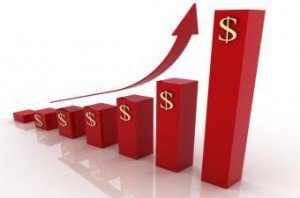
CoreLogic’s S&P Case-Shiller Index found home prices have been rising at their fastest annual pace in 12 months, with home prices up 3.9% in January.
Of the 20 markets studied by the index, Phoenix—for the eighth consecutive month—led the nation in home-price appreciation, growing 6.9% annually.
Phoenix also found that 9.6% of homes sold in the month made up one-third of sales and were up 6.2% for those that were in the highest one-third price tier.
The metros of Seattle; Tampa; and San Diego, each reported growth of 5.1%. CoreLogic said all of these markets had strong population growth and local economies fueling home purchases.
New York and Chicago reported the smallest annual price gain, at 0.8% and 0.6%, respectively. CoreLogic states the Census Bureau reported Illinois and New York had an annual decline in population between 2018 and 2019.
Comparing home-value appreciation with the Bureau of Economic Analysis’ Personal Consumption Expenditures (PCE) index. In comparison, the PCE was up 1.8% in January 2020 compared to the year prior.
Additionally, First American’s Real Home Price Index (RHPI) shows home prices rose just 0.1% from December 2019 to January 2020. Prices, however, fell 3.8% annually from January 2019 to January 2020.
First American found the consumer house-buying power rose by 1.4% between December 2019 and January 2020—also growing 13.2% year-over-year.
The median household income increased 2.3% annually and 59% since January 2000. Home prices are 17.2% less expensive than in January 2000.
New Jersey and Ohio were the only two states to record a year-over-year increase in First American’s RHPI at 2.7% and 0.2%, respectively.
First American’s study, however, noted that the housing market is currently underbuilt.
Since 2009, housing demand has grown faster than supply. In 2018, 1.2 million households were formed but 860,000 were purchased, resulting in a shortage of 340,000 units.
“Prior to 2009, the opposite was true, as housing supply significantly outpaced demand. The limited supply of homes positions the housing market to lead the recovery, once the impact from the coronavirus outbreak fades,” said Mark Fleming, Chief Economist at First American. “In fact, it’s important to remember that the housing market has traditionally aided the economy in recovering from a recession. Consumers who are less affected by a downturn are willing to buy and sell, which can help get other parts of the economy moving.”

 theMReport.com Your trusted source for mortgage banking news
theMReport.com Your trusted source for mortgage banking news








